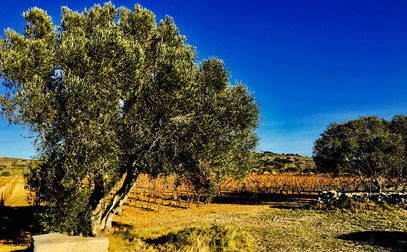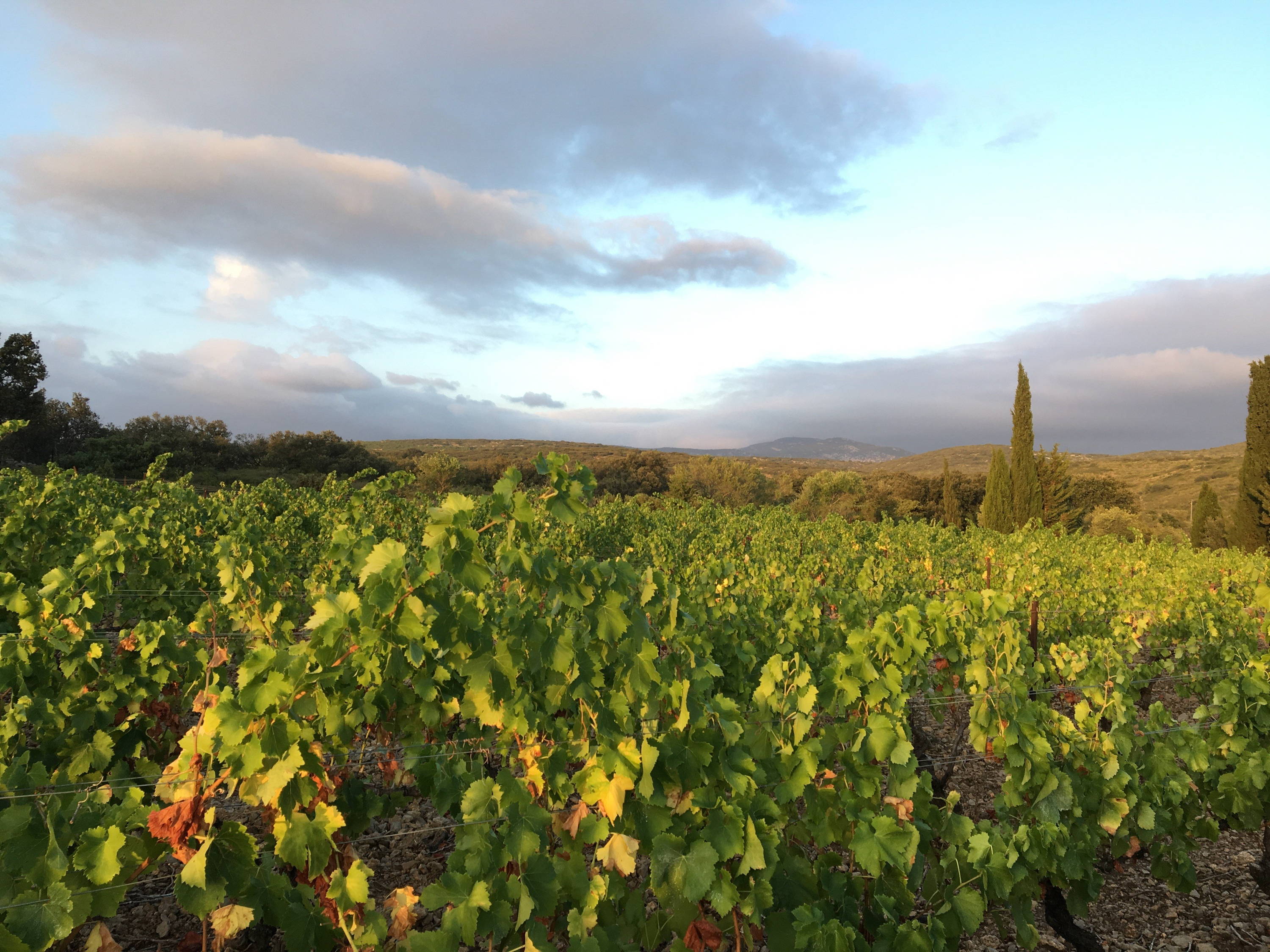LES MILLE VIGNES
Valérie Guérin
Domaine Les Mille Vignes is a unique and original estate for multiple reasons. Firstly, it has an interesting history starting with Jacques Guérin, an oenology professor in Orange who founded the estate in 1979. He settled in the tiny Languedoc-Roussillon village of La Palme, a few kilometers from the Mediterranean Sea, and soon began producing wines from nearby Fitou and Rivesaltes. Jacques Guérin dedicated his time to revealing the underrated appellations, delivering stunning whites and reds through local grapes such as Grenache, Carignan, and Mourvèdre. The Domaine intentionally remains tiny, with only 11 hectares, compared to the average size of Languedoc estates, as the Guerin family focuses on producing high-quality wines to truly reveal the terroirs: old vines (up to 60 years old), massal selection, very low yields (~20hl/ha), and long maceration are their key words.



The terroir of Fitou, the homeland of Les Mille Vignes, exclusively produces red wines and was the first Languedoc AOC established in 1948. It is made up of a diverse and complex soil structure, a mix of clay, limestone, and schist. The "Tramontane" a strong and dry cold wind coming from the north, influences the vine ripening cycle, bringing freshness and dryness, which is a beneficial factor against diseases such as mildew. Les Mille Vignes adopts organic methods in the vineyard, producing both dry (Fitou) and sweet wines. Rivesaltes and Muscat de Rivesaltes are the sweet fortified wine appellations (Vins Doux Naturels).
Today, Jacques' daughter, Valérie Guérin, continues the same ethical standards in the vineyard and cellar from the historic thirteen plots of Les Mille Vignes. Even though Valérie does not wish to increase the size of the estate, she experiments with different approaches. For example, one single plot can be harvested through three different passes: a first pick is done in August to produce the rosé wine of Les Mille Vignes, then a few weeks later, a second one to produce the famous cuvées such as Atsuko, and finally, at the end of November, a third one for fortified wines. This fastidious and meticulous method benefits the complex and original wines.
In the cellar, the grapes are destemmed and fermented under indigenous yeasts. The reds are aged for 18 months, mostly in resin and concrete tanks, with not much oak, while the whites are aged on lees for six months.
The style of Les Mille Vignes is quite unique. While many Languedoc wines are full-bodied and high in alcohol, Valérie Guérin seeks refined and ethereal wines. It is a Burgundy touch while keeping the true spirit of Languedoc through local grapes.
Les Mille Vignes delivers a unique style of wines that is honored by the best Michelin-starred chefs, such as Pierre Gagnaire and Mauro Colagreco.


In the cellar, the grapes are destemmed and fermented under indigenous yeasts. The reds are aged for 18 months, mostly in resin and concrete tanks, with not much oak, while the whites are aged on lees for six months.
The style of Les Mille Vignes is quite unique. While many Languedoc wines are full-bodied and high in alcohol, Valérie Guérin seeks refined and ethereal wines. It is a Burgundy touch while keeping the true spirit of Languedoc through local grapes.
Les Milles Vignes delivers a unique style of wines that is honored by the best Michelin-starred chefs, such as Pierre Gagnaire and Mauro Colagreco.
REGION OF PRODUCTION
Languedoc
APPELLATION
Fitou, Rivesaltes
FOUNDED
1979
VINEYARD
Organic farming – 11 ha divided into 13 plots on 3 appellations
CLIMATE
Mediterranean
SOIL COMPOSITION
Clay, Limestone, and schist soils on a warm climate cooled down by “Tramontane”
VARIETIES GROWN
Grenache, carignan, syrah, mourvèdre et lledoner pelut.
AGRICULTURE
Conventional farming































